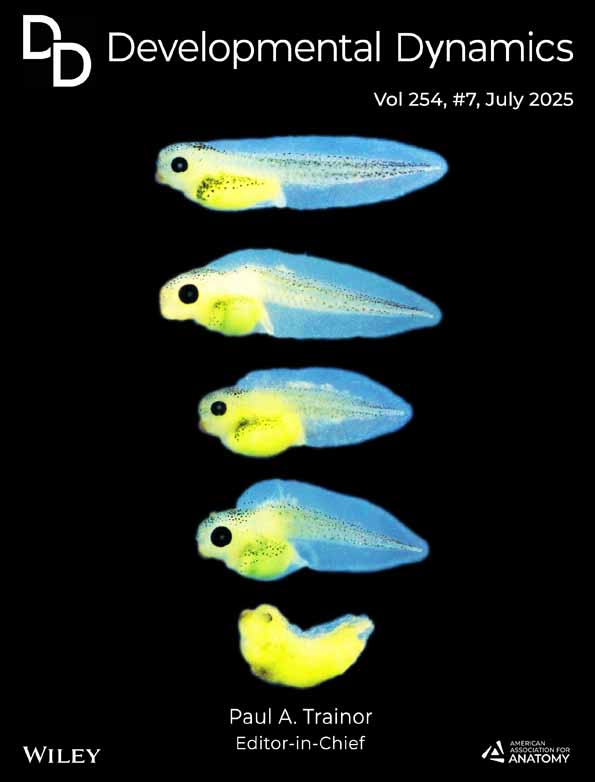Prenatal development of the ductus epididymidis in the rhesus monkey. The effects of fetal castration†
Publication 595 of the Oregon Regional Primate Research Center. This study was supported by NIH grants HD-05180, RR-00163, and HD-05969.
Abstract
After formation of the epididymis, the cuboidal epithelial cells of the ductus epididymidis undergo little cytodifferentiation in the fetal rhesus monkey. However, from 130 days of fetal life until birth, the cells undergo a period of differentiation that proceeds in an anterio-posterior direction along the duct. Concurrently epithelial cells of the ductus efferens and caput epididymidis transform from a cuboidal condition with no surface modifications to cells similar to those of adults. Over 50% of the cells become ciliated and the remainder develop surface modifications resembling those in adult nonciliated cells. The epithelial cells lining the ducts of the corpus epididymidis, and in some cases those of the cauda epididymidis, develop stereocilia.
Castration of the fetus between the 106th and 112th day of gestation prevents differentiation of the epithelium of the epididymis. Administration of medroxy-progesterone, a drug with androgenic properties, to the mother of a castrated fetus results in normal differentiation of epithelial cells lining the fetal caput epididymidis. These studies indicate that fetal differentiation of the epithelial cells of the epididymis depends on the secretion of androgen by the fetal testes. The androgen level drops at birth, and concomitantly the epithelial cells of the male reproductive tract return to an undifferentiated state until puberty.




